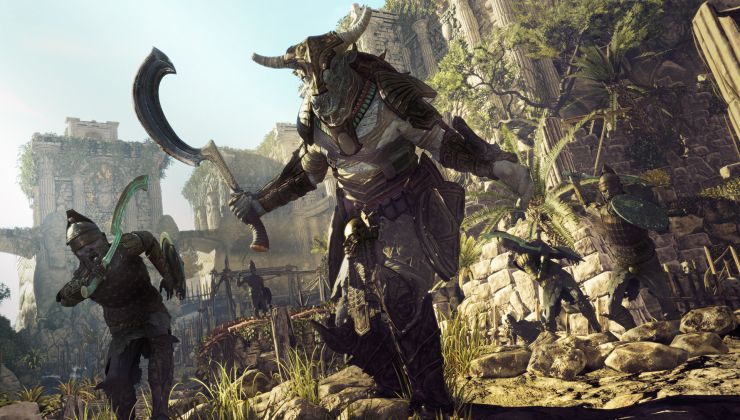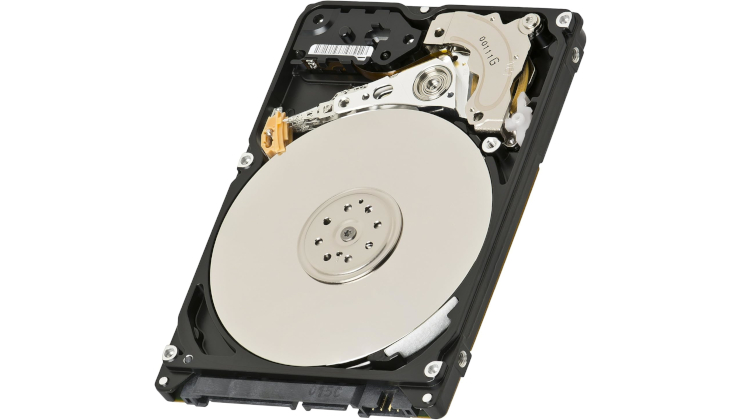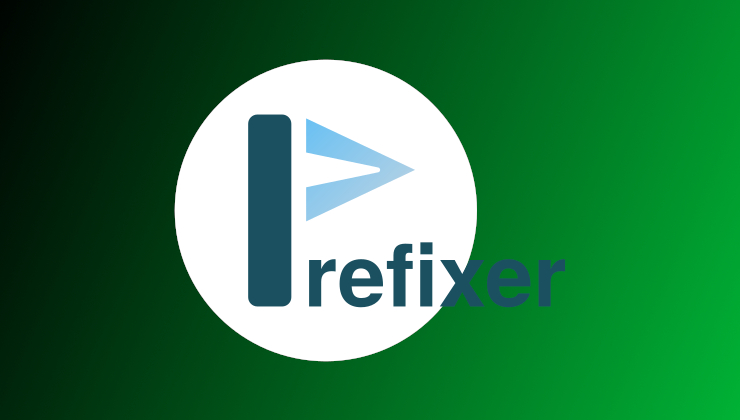Supraland, a highly rated open-world puzzle adventure, has now removed mentions of Linux on Steam as the developer is unable to actually support it.
This comes shortly after the developer asked for Supraland to be completely removed from GOG, after being there less than a year citing lower sales. If you read that previous linked article, this news likely won't come as much of a surprise. Checking on SteamDB, it seems they removed the note of Linux support earlier in June. Looking around, the developer mentioned this in the official Discord, "I stopped direct linux support. Using the windows version with proton gives much better results like a much higher framerate.".
This quite likely means Supraland 2 that was funded on Kickstarter, which mentioned Linux as a planned supported platform, won't support Linux either if this is how the developer plans to go forwards.
We've seen how the developer has repeatedly mentioned before that they actually "know nothing about linux". A shame but if you're going to sell your game on a platform, that you don't test it on and don't support in any way, what's the point? It's not good for anyone.
A repeating problem too, the weird expectation that clicking to export in a game engine is enough to sell the game without testing or supporting it, which needs to stop. No one would do the same for Windows or Consoles but as usual, it comes down to the low market share cycle of doom. Developers don't support Linux directly with the lower market share, so less people use Linux and repeat. We're at least seeing a clear upwards trend right now, so perhaps one day we can see more direct support when the user share is big enough.
While I like the article and being updated with the information, I don't like the actual information itself. Supraland is such a good game too. :cry:
I myself struggled to enjoy Black Mesa Source, by stubbornly ignoring the obvious option to use Proton + win32 binary. Him reducing the bite to what he can chew is a good thing....
Except... If you have a Linux native version as a selling point, you should be decent-enough to offer refunds for the people who (rightfully) feel like they've been hoodwinked.
Today all computers run on x86 architecture, all you need for testing your game on Linux is to install the damn distro.
Quoting: GuestCounter counter point: If "back in the day" means the 80s, porting a game meant using assembly language on vastly different hardware. Budgets were way lower, and yes, usually it was 1 person doing it, but I don't really think relatively speaking it was easier.Quoting: omer666It's more of a monopoly problem than a low market share problem. Back in the days, porting a game on 4/5 different OS was the norm.Ignoring the main topic a little, "back in the day" games were also far less complicated to write. Game engines could likely be maintained and ported by a single person, or very small teams. It's far more complex these days.
Today all computers run on x86 architecture, all you need for testing your game on Linux is to install the damn distro.
...not to say that I don't think you're right. I do think you're right. They could just install GNU/Linux (and by now it's fairly easy to find the most popular) to do at least basic testing for a version they're asking people to pay money for.
Quoting: Whitewolfe80Thing for me its too late yes our marketshare has increased but almost every single video/article that says nows the time to try linux has one draw back proton its all they talk about and lutris I use both so i am part of the problem. That problem is of course proton has become the clutch we all rely on for games on linux. We have collectively given up on native gaming with the exception of indie games and the one to three games we get from feral a year. We have already seen developers say use the proton version if you want a linux version that attitude has quickly become the norm.It's definitely an annoying and stupid trend. People don't realize that Proton is putting our eggs in one ever-growing basket that will eventually collapse in on itself. We need game devs that know how to work with Linux that will contribute to the ecosystem.
But on the topic of "collectively giving up on native gaming", I will point out that there are those of us that still totally reject Proton as the future of Linux gaming.
Quoting: SamsaiThe problem is not really Proton but the lack of consideration from some delevopers who targeted Linux. I'm totally fine with devs that officially target Proton: doing testing, QA and support as they are supposed to do for any target.Quoting: Whitewolfe80Thing for me its too late yes our marketshare has increased but almost every single video/article that says nows the time to try linux has one draw back proton its all they talk about and lutris I use both so i am part of the problem. That problem is of course proton has become the clutch we all rely on for games on linux. We have collectively given up on native gaming with the exception of indie games and the one to three games we get from feral a year. We have already seen developers say use the proton version if you want a linux version that attitude has quickly become the norm.It's definitely an annoying and stupid trend. People don't realize that Proton is putting our eggs in one ever-growing basket that will eventually collapse in on itself. We need game devs that know how to work with Linux that will contribute to the ecosystem.
But on the topic of "collectively giving up on native gaming", I will point out that there are those of us that still totally reject Proton as the future of Linux gaming.
But I haven't seen a single dev doing so for Proton. Proton for devs is just an excuse for doing nothing to support Linux but still accepting money. That's shameful.
As a professional developer myself, and like ALL devs, I know that delivering on production an untested version is very risky and have high chances or being a support nightmare.
Shame though, the game was fun when I played it.
Quoting: TheBardI'm totally fine with devs that officially target Proton: doing testing, QA and support as they are supposed to do for any target.No Man's Sky is an example I'm aware of. Hello Games mentioned in their changelogs that they'd done things specifically to help the game work in Proton, and the bugs that I'm aware of (there was an input bug that I experienced, and recently someone was saying in the forum that they'd had connection problems) were also bugs in the Windows version rather than being caused by Proton. The game itself switched to using Vulkan a while back, so they could potentially become Linux devs in the future.
But I haven't seen a single dev doing so for Proton.
Quoting: GuestAnother case of "if you are not familiar with linux don't port your game to linux", that will just lead to having a bad time. Developing a game for linux is NOT easy and we all have been guilty of spreading the myth that it is.You do understand that the "if you are not already familiar with X, don't become familiar with X" is a really pointless mantra to follow, right? Why learn new things ever? A better idea to follow is to factor in the time and cost of executing a port properly and not doing this "let's hope and see" approach where devs place their trust on a magic export button. If the time and cost investment seem reasonable, then commit to the port.
Frankly my dream is that ultimately one day the OS you run will become irrelevant and then the "native gaming" nonsense goes away for good.
Developing a Linux game is no harder than developing a Windows game. You can make it harder for yourself or you can make it easier for yourself, but those are choices one makes. Developers deal with the same sorts of choices all the time: do you invest some time and work up front to ensure your architecture holds in the future or do you do a rush job early on and eventually pay back the technical debt.
As for the final point, it is possible that in the future general purpose operating systems may converge to become nearly indistinguishable from one another. However, if that happens because all alternative operating systems ditch their good ideas to mimic the popular but garbage operating system, that's not progress.
Also, "native gaming nonsense"? I take offense to that.
Last edited by Samsai on 27 Jun 2020 at 3:58 pm UTC
Yes, with that atitute, we will only have proton in a few years. We are ok with developers ignoring the platform alltogether. We celebrate those that *even by luck* create good ports. We even celebrate those that ignore us but implement a Vulkan renderer.
But a developer who supported us for years doesn't release his newest title to linux or has issues to continue support?. Grab your forks.
But hey, maybe Valve will save us. Amazing community.
Last edited by const on 27 Jun 2020 at 3:11 pm UTC
Quoting: EhvisThe performance argument is a bit of a non-issue. Yes, it is true, but it is true for all UE4 games. The real problem appears to be that the dev(s) are much better at designing games (Supraland was awesome when it still worked), but not so good at the technical side of things. Even with the performance loss, it should have been fine on Linux. The way that later updates got broken was curious. The crash was not something common to UE4 games on Linux, so it's very possible that this is a platform independent bug. It should have been fixed because this may at some point start affecting Windows as well. If they are going to do Supraland 2 and investigating it now would have prevented it.The game works. The only problem is an erroneous deploy on Steam + a bug on the content selection. The attitude makes me remember by a lot to Garry Newman.
Quoting: constI would have highly prefered had people asked the dev to move the linux build to a beta repo. The way it went, I am quite angry on the loud people who demanded the developer to remove the linux version all together. Switching to Proton is a matter of 2 clicks, but after removing the native version no one can use it any more. That's a decision loud people from the community have tailored and now those who have a different opinion can only live with.I agree with you in some points of the general attitude of the community. BUT the behavior of the dev is far from professional at this point and the way he has been handling the situation is completely nonsense. Anyway, I give you the point that in the past many from the community were more supportive to guys like Garry, which had a way worst behavior than this guy.
Yes, with that atitute, we will only have proton in a few years. We are ok with developers ignoring the platform alltogether. We celebrate those that *even by luck* create good ports. We even celebrate those that ignore us but implement a Vulkan renderer.
But a developer who supported us for years doesn't release his newest title to linux or has issues to continue support?. Grab your forks.
But hey, maybe Valve will save us. Amazing community.
And lets be honest, half the problem with linux adoption is "Windows people who tried it 10 years ago w/ their energy-drink inspired keyboard and unsupported wireless drivers who googled an incorrect blog entry before writing their own incorrect blog entry about how to support something and now take every chance they get to rag on Linux in some unrelated social media post comment thread" mindset.
The good news is every time Microsoft or Apple force an unpleasant change people tend to re-evaluate their options, which I can imagine only helps. Even my wife, who absolutely loathes change in her technology, asked me about putting Linux on her laptop after she was first introduced to Windows 10.
Will that idea work out in the end? Maybe, maybe not. I certainly know some of my friends/peers have had renewed or initial interest in Linux lately.
Quoting: GuestDeveloping a game for linux is NOT easy and we all have been guilty of spreading the myth that it is.With respect, I disagree. We all have? Speak for yourself perhaps. No platform is easy. The difference is with Windows, it's considered the norm and so it's where developers usually start off so it naturally is for them the easier option. It doesn't make Linux itself suddenly hard to develop for, that in itself is spreading a myth.
Quoting: GuestFrankly my dream is that ultimately one day the OS you run will become irrelevant and then the "native gaming" nonsense goes away for good.That's realistically not something we're going to see in any of our lifetimes.
i wouldnt call that "support", so he cant stop supporting it, if he never supported it












 How to setup OpenMW for modern Morrowind on Linux / SteamOS and Steam Deck
How to setup OpenMW for modern Morrowind on Linux / SteamOS and Steam Deck How to install Hollow Knight: Silksong mods on Linux, SteamOS and Steam Deck
How to install Hollow Knight: Silksong mods on Linux, SteamOS and Steam Deck